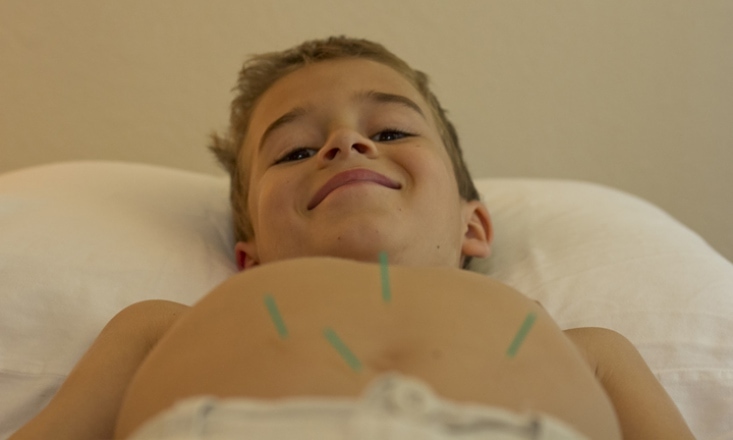A recent Stanford University study has found that acupuncture is both safe and effective in children, calling the practice “useful in chronic pain conditions” and adding that it may be “clinically valuable in an integrative medical setting,” reports the Epoch Times.
Acupuncture, which stimulates the body’s natural painkillers, has been found to relieve headaches, migraines, abdominal pain, fibromyalgia, pelvic pain, Complex Regional Pain Syndrome, acute post-operative pain, and post-operative delirium, according to the Times.
The Stanford study found that children and adolescents experienced pain relief in these areas after undergoing acupuncture; although 53 percent were “initially apprehensive,” 64 percent said it didn’t hurt after the first needle was placed.
Of the adolescents studied, 67 percent reported that their experience was “pleasant,” while 70 percent said that acupuncture reduced their pain levels.
Effects on Migraines, Arthritis, and Fibromyalgia
The Stanford team also studied a randomized trial of children with migraines and found that acupuncture decreased the frequency and severity of headaches.
In addition, acupuncture was found effective for children with intermittent abdominal pain. For those suffering from juvenile arthritis, “acupuncture was found to change cortical responses to painful stimuli in fibromyalgia patients, suggesting a complex inhibitory modulation may be active in the central nervous system.”
Pain relief via acupuncture was also useful in cancer patients. The researchers found “quality studies” showing that acupuncture was effective for reducing nausea and vomiting related to chemotherapy treatments for cancer; children aged seven months to 18 years old also experienced “significant and lasting” post-operative pain relief when they underwent acupuncture, which also reduced delirium and agitation.
Acupuncture as a Complement to Standard Healthcare
After looking into a cost-benefit analysis of acupuncture, the research team found that the cost of undergoing acupuncture in addition to standard healthcare was “more than balanced” by decreased medical spending in other areas such as outpatient visits, hospitalization, and for adults, a reduction in lost days of work.
It may take a lot of coaxing to get kids to submit to a needle-based method of treatment, but the facts appear to back up what many practitioners of acupuncture have believed for thousands of years.
What do you think? Would you allow your child to undergo acupuncture?
Image Credit: Acupuncture Pediatrics


